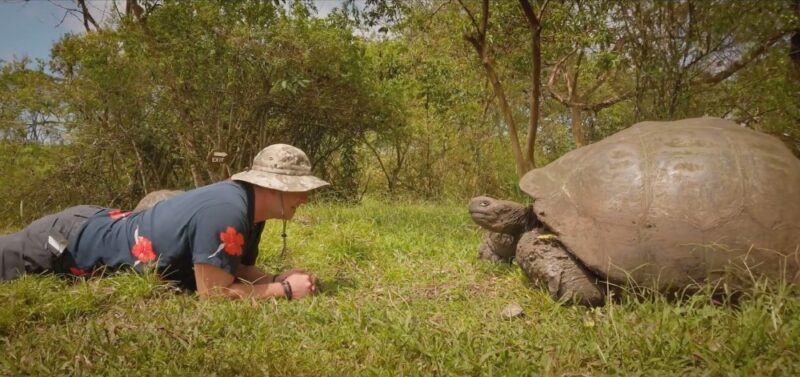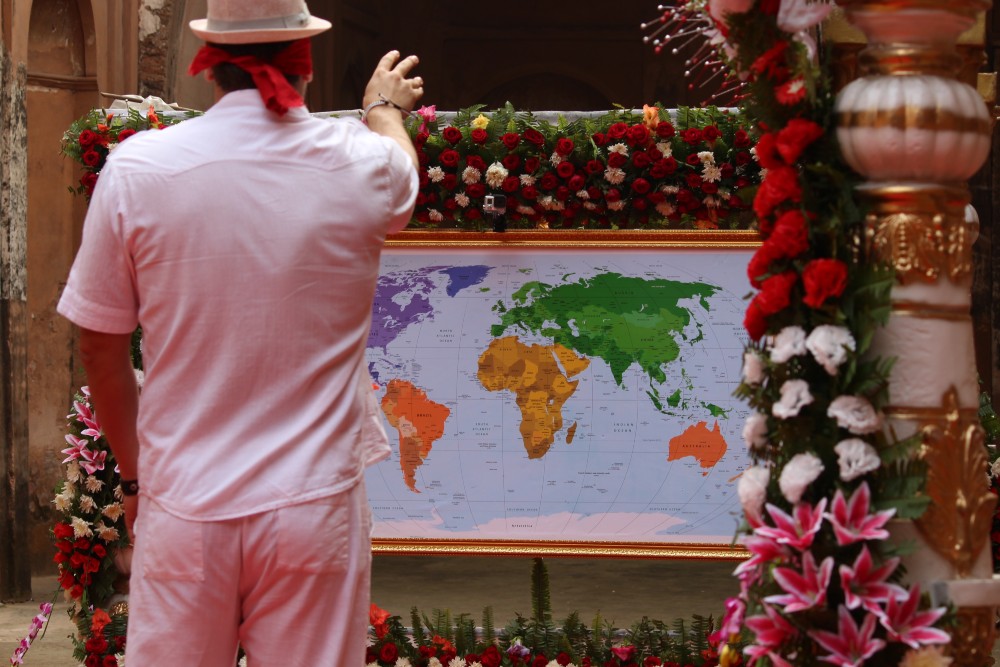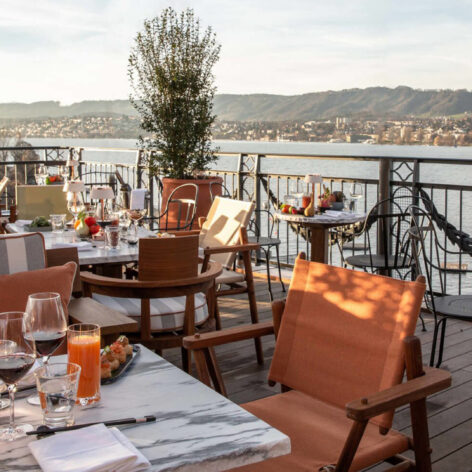Meeting Aorani tribes in the Amazon jungle, staying at Bill Clinton’s villa, and riding an ostrich is all a day’s work for Romanian-native Sorin Mihailovici. The concept of his travel show, Travel by Dart, is that he throws a dart onto the world map blindfolded. Wherever it lands, Sorin will have to travel there, no matter how far, complicated or expensive it is. Literally living a life of adventure, the darts have taken him on incredible journeys across all continents, from the mysterious Bermuda Triangle in the North Atlantic to the islands in Polynesia.
A fun mix of both adventure travel and reality TV, it’s entertaining to watch how Sorin resourcefully makes it to his next destination, not to mention how he hurdles the challenges along the way. As viewers tag along for the ride, it’s nothing short of fascinating to walk into the very room and castle in Romania where Count Dracula was born, or to see the luxurious underwater restaurant in the Maldives. But along with providing viewers the inspiration to get cracking on their travel dreams, the show also makes it a point to contribute to charities and causes as a way of helping spark change in the world. Travel by Dart‘s first two seasons are currently available now on YouTube and various television stations in Europe, with Sorin hoping to continue his adventures in Japan as part of Season 3. Recently in Thailand, we caught up with the show’s producer and host for a chat on the thrills and pitfalls of filming around the world.
How did the idea for the show come about?
One day, my best friend asked me all of a sudden [for] my idea of a successful life. I said, to me, a successful life is to be able to throw a dart at the world map blindfolded and go wherever it lands, no matter how far or difficult it is. It was not necessarily about the dart throw itself as an act, but rather about the freedom to go where it lands — whenever you want and with whoever you want.
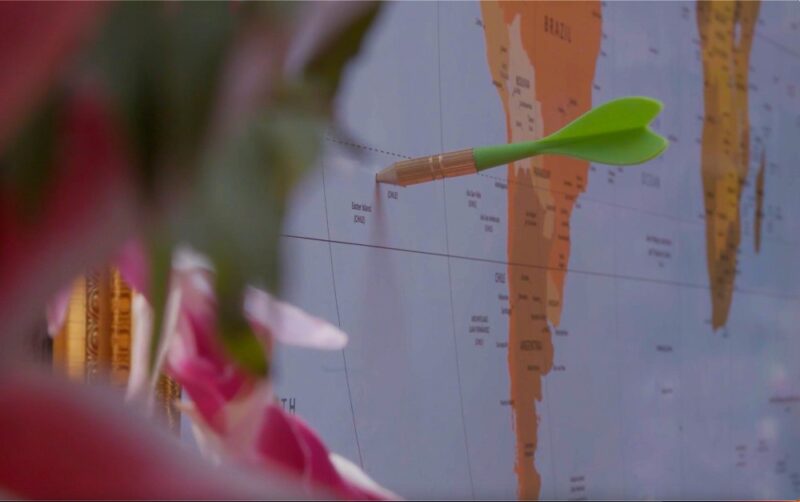
What has been the craziest experience of your travels so far?
We were going to Easter Island, a tiny village of 5,000 people at the end of the world, in the middle of the Pacific Ocean. The island has been known to have cannibalism episodes to the degree that the population decreased to only 111 people a century ago.
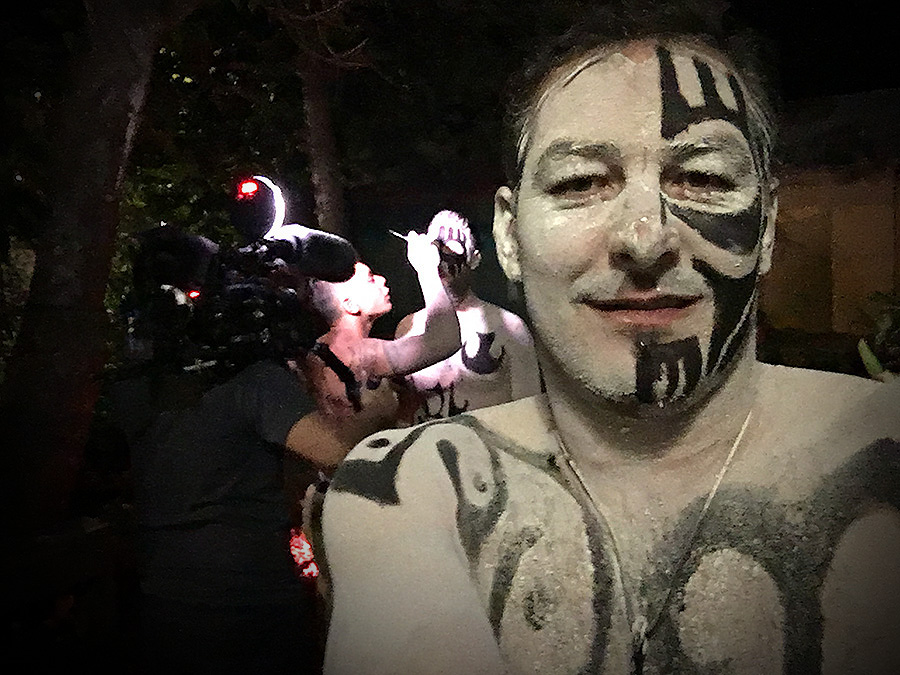
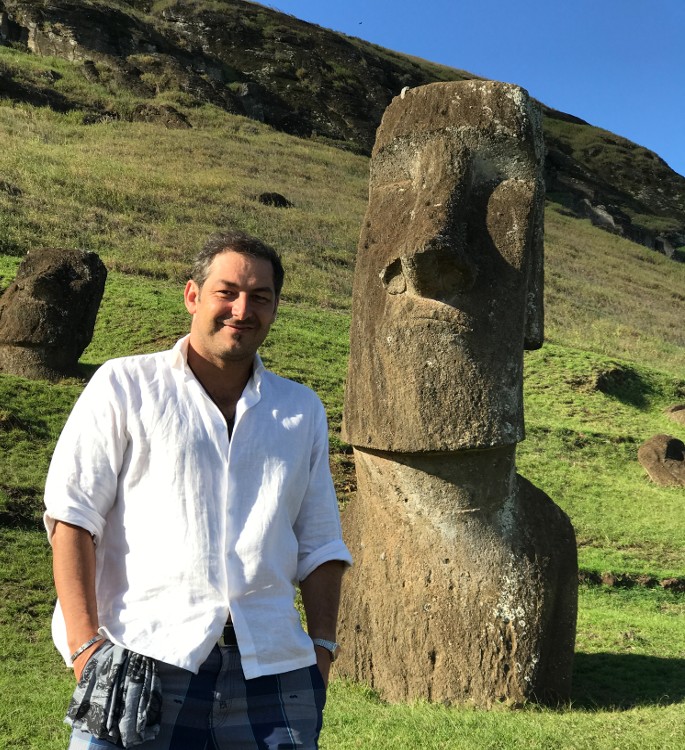
Anyway, we landed there, and some locals decided to do a ‘welcoming ceremony’ for us. At night. They kept mentioning something will happen to us around 1am… The leader of the village came and talked to everyone in Rapa Nui (their native language). They fed us weird drinks and kept talking about the event at 1am. What could happen on the most remote island in the world at 1am, while raining like crazy, during an aboriginal ceremony? We were scared and thoughts of cannibalism kept coming into my mind more and more. We got so much to drink that we didn’t care anymore. Then, at 1am, they said, “the time has come.” At that moment, they told us to get in a car. Twenty other people came along. Where did they take us? To A NIGHTCLUB!
You meet or follow the trails of famous people in your show. What were you most impressed by, after coming across these legends?
I was incredibly impressed by the mark Che Guevara left on the Cuban people, although he was Argentinian. He is highly praised in Cuba, many things having his name — from streets, squares, drinks and restaurants to even towns and toys.
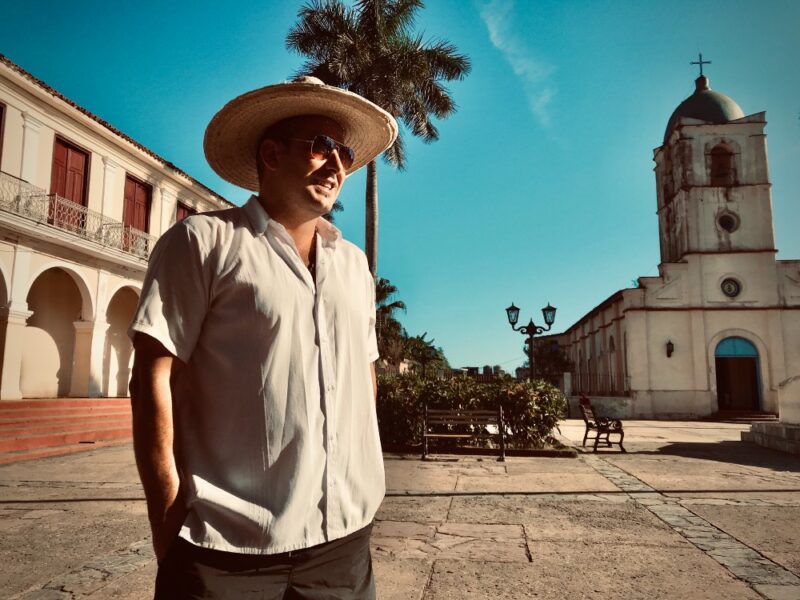
At the same time, Eva Peron was Argentina’s most loved female in history. Three million people attended her funeral. After she died at only 32 years of age, her body disappeared for 17 years, the corpse being stolen after her husband had to flee the country after a military coup. Eva Peron’s body was discovered in Italy after almost two decades and brought back to Buenos Aires. Nowadays, she is buried in a very normal tomb along with other thousands of Argentinians in the Recoleta cemetery.
And what was the most glamorous experience you’ve had on your travels?
Costa Rica is becoming more and more luxurious. I was surprised that when I got there the local people arranged for me a series of glamorous experiences, from putting me in a 5-star villa at a top of a hill overlooking Guanacaste, to taking me for a full body massage in chocolate for a day. I smelled like chocolate for a week — every time I broke a sweat.
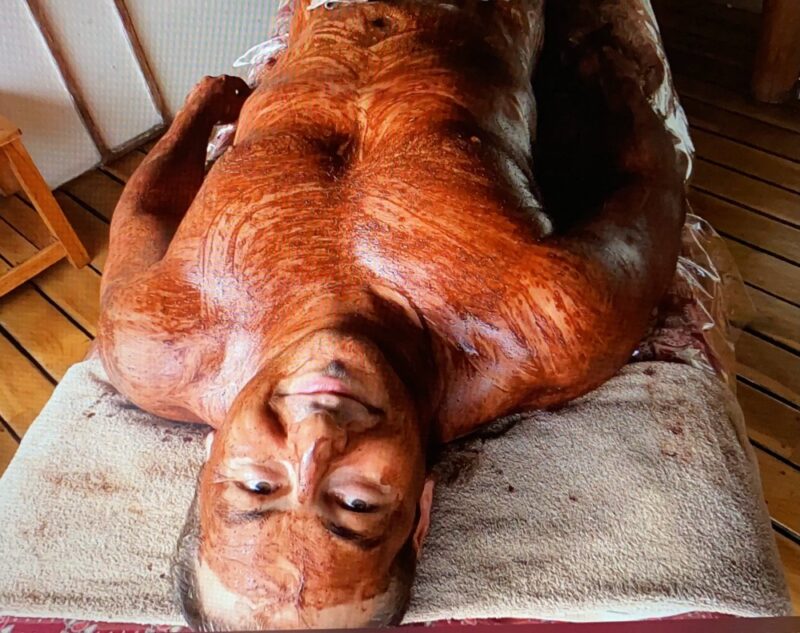
What did you enjoy most while filming your Thailand episode?
It sure was the country I thought it would be: exotic, adventurous, friendly, with amazing people. The hospitality is genuine and the vibe is incredible. Thailand took my heart. I was in Cambodia when I threw that dart blindfolded and I could not believe what I hit. I was so emotional that I could barely find my words on camera — I always wanted to go and now my dream came true.
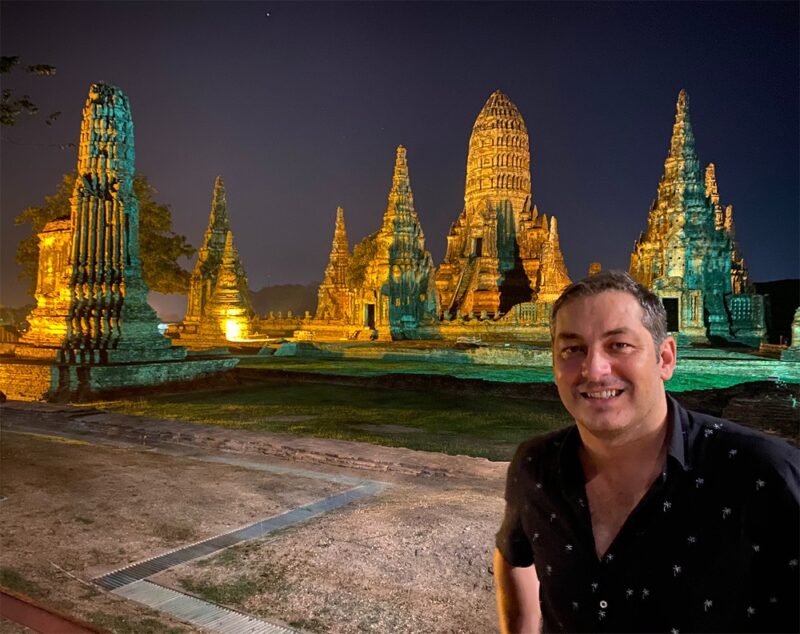
I enjoyed quite a few subjects we shot for the episode, from going to Samui to experience wildlife, elephants and waterfalls, to immersing myself in the new, modern, corporate world of Bangkok. Probably my favorite part though was taking a trip to Kanchanaburi and around the area to discover the Death Railway to Myanmar. It was an extremely emotional ride on a river cruise with stops at the most important landmarks of the railway.
You also had a Cambodia episode, how did you find that country?
Cambodia is not only about the Angkor Wat. It’s a lot more than that. I would say my most memorable moments were a monk ceremony and visiting the Phare Circus children. All the performers in the Phare Circus are the kids of Khmer Rouge victims. The circus has daily performances in Siem Reap. A third event I really loved in Cambodia was a sunset cruise on Tonle Sap lake. Incredible.
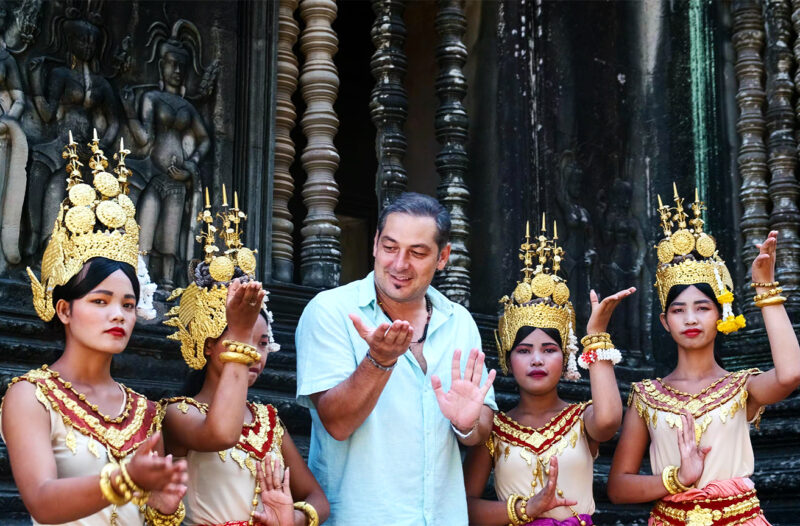
You try to help people in the countries you visit. Which country and what cause do you feel most moved by?
The pilot episode of Travel by Dart was shot in Russia. Not too many people know what’s happening there. When we went to film the show, we discovered that there are about 750,000 orphans in Russia, mostly due to alcoholism. We visited an orphanage where we spent about $30,000 on buying gifts, toys and necessities for those children. It was a heartfelt experience that I will never forget.
What is an important lesson you’ve learned from all this?
Whoever doesn’t travel will die poor. Poor of culture, life and spirituality. I’ve learned a million lessons, the most important being that everyone is different and people could be happy even with one dollar in their pocket. It’s not about the amount of days we live on this earth, it’s about how we live them.
